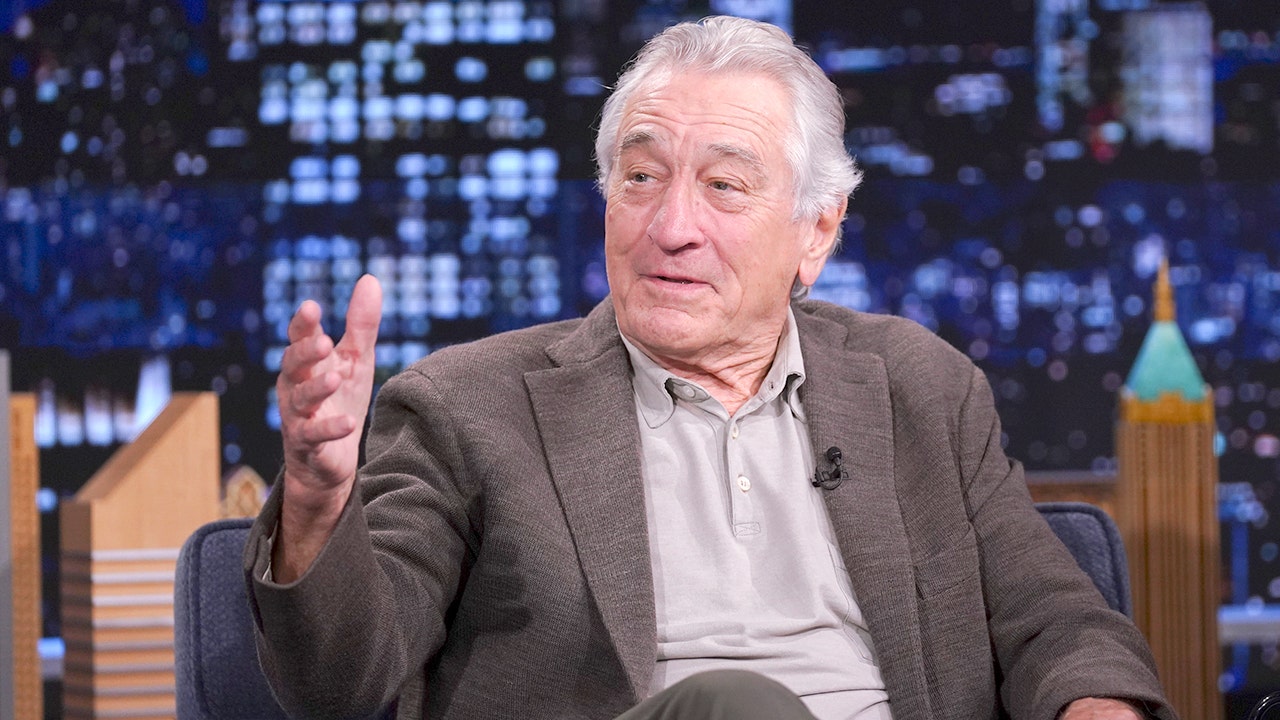“HE SAID THREE WORDS — AND THE ROOM WAS FULL”: Robert De Niro Crushes Jeanine Pirro With One Unexpected Line…
Jeanine Pirro entered the studio like someone accustomed to control—sharp, assertive, and meticulously prepared. Every statistic, every jab, every pivot point had been rehearsed. Her confidence wasn’t accidental; it was constructed, layered, almost architectural. She wasn’t walking into a conversation—she was walking into a courtroom where she had already written her closing argument.
Robert De Niro, by contrast, moved with a different gravity. There was no rush, no defensive edge, no attempt to broadcast dominance. The room didn’t bend around him; it adjusted. As he sat quietly, observing rather than countering, it became clear he wasn’t there to win a war of words. He was there for something quieter—and ultimately much more devastating.
What happened next has already begun circulating in political circles as a kind of modern parable about power, ego, and the potency of stillness.
Three words.
Softly delivered.
Unexpected.
Yet transformative.
And the room, for a moment, felt full—full of tension, of revelation, of the unmistakable weight of truth.
A Clash No One Expected to Matter This Much
Before the moment that now defines the encounter, the discussion followed the usual script: Pirro pressing, prodding, escalating; De Niro deflecting with calmness bordering on indifference. He often leaned back slightly, hands resting in that familiar De Niro half-fold, the look of a man who has outgrown the need to impress.
Pirro accused him of elitism.
He didn’t react.
She accused him of partisanship.
Still no reaction.
She accused him of hypocrisy.
His posture didn’t move—not even an eyebrow.
This only sharpened Pirro’s performance. In broadcast spaces, silence is dangerous: it gives your opponent room to breathe. Pirro seemed determined to fill every inch of that space, and the faster she spoke, the more she believed she was cornering him.
But politically motivated aggression works only if the other side willingly participates. De Niro didn’t. He refused to inhabit the rhetorical battlefield she built for him.
And that refusal, ironically, is what set the stage for what would become the defining moment.
The Question That Went Too Far
The shift began when Pirro attempted to press De Niro into a defensive position. She fired a layered question—one designed not to be answered, but to trap. A question that, had he reacted emotionally, would have validated her script.
She leaned forward.

Her tone sharpened.
Her smile tightened.
The studio felt smaller.
Most guests respond with fire.
A few respond with sarcasm.
A rare handful respond with silence.
De Niro responded with something else entirely.
He reflected her tension back at her—not through argument, but through presence.
He waited.
Measured.
Patient.
And when he did speak, he didn’t raise his voice, didn’t rush, didn’t signal victory. He simply offered three words that instantly reframed the purpose of the entire conversation.
“You’re better than this.”
Three words.
Delivered almost gently.
But the impact was seismic.
For a moment, Pirro froze—not because she was defeated, but because she was disarmed. The line didn’t wound her pride; it bypassed it. It didn’t challenge her politics; it challenged her professionalism.
And that is a far deeper blow.
The studio’s silence after the line wasn’t awkward—it was revelatory. It was the startled pause of an audience suddenly aware they are witnessing a moment that wasn’t scripted, orchestrated, or manufactured.
Even the cameras—cold, mechanized observers—seemed to hesitate, as though unsure whether to zoom in or hold steady.
Pirro blinked.
Her voice caught.
Her posture faltered, if only for a breath.
De Niro didn’t follow up. He didn’t press the advantage. He didn’t gloat. He simply allowed the weight of the words to settle into the room. He gave her space—not to respond, but to reflect.

And that silence was the real victory.
Why Three Words Carried More Weight Than a Three-Minute Monologue
In politics and media, people expect confrontation. They expect volume, sparks, clashes of ideology. What they never expect—and are rarely prepared for—is sincerity. Especially weaponized sincerity.
De Niro’s line worked for four specific reasons:
1. It decoupled Pirro from her performance
She entered the room in “combat mode”—a persona honed for television. His words implied that persona wasn’t worthy of her. Suddenly, continuing to attack him would make her look small, not strong.
2. It appealed to her ego in a non-flattering way
Telling someone they are “better than this” suggests they are failing their own standard. It’s not humiliation—it’s disappointment. And disappointment is far harder to swallow than criticism.
3. It exposed the theatricality of the moment
By stepping outside the debate frame, De Niro reminded the audience that what they were watching wasn’t truth; it was performance. Pirro, momentarily, became aware of the stage she was standing on.
4. It spoke to something universal
Everyone, at some point, has been told they’re capable of more. It resonates. It lingers. It destabilizes pretense.
Three words did what twenty counterarguments could not.
The Room Was Full — But With What?
The title of this moment—“the room was full”—has been circulating online, but what was it full of?
Not anger.
Not victory.
Not humiliation.
It was full of clarity.
Clarity that political debates often obscure.
Clarity that arguments sometimes distract from.
Clarity that authenticity, even for a second, has more persuasive power than rhetoric.
For that single moment, the room was full of things both Pirro and De Niro understood deeply:
The truth that every debate has a human being behind it.
The recognition that sometimes we all slip into roles that don’t reflect who we actually are.
The realization that restraint can be a more powerful form of expression than aggression.
And perhaps most importantly:
the reminder that listening—real listening—is the rarest act in modern media.
De Niro listened.
Pirro performed.
And when the performance slipped, the truth appeared.

After the Moment: A Shift Impossible to Hide
The rest of the segment changed—subtly but unmistakably.
Pirro’s tone softened.
Her volume lowered.
Her pace slowed.
She began searching for footing—not in confrontation, but in coherence.
The aggression that fueled her opening monologue evaporated, replaced with something quieter, more controlled. She wasn’t defeated; she was recalibrated.
De Niro, for his part, didn’t press the advantage. He continued speaking in the same calm, deliberate tone. He wasn’t a victor basking in triumph; he was a guide nudging the conversation back toward humanity.
And that restraint, more than anything, cemented the moment as something meaningful—not just viral.
A Moment That Will Be Studied, Not Forgotten
Political commentators will analyze the exchange for weeks. Social media will clip it, remix it, reinterpret it. Some will claim De Niro “owned” Pirro; others will insist he was condescending. But these interpretations miss the deeper significance.
This wasn’t a clash of politics.
It was a clash of styles.
A clash of mediums.
A clash of intentions.
Pirro came to win.
De Niro came to remind.
And reminders—gentle, honest, unguarded—leave marks arguments never do.
In a culture where shouting is commonplace and silence is rare, those three words landed with the force of a monologue.
“You’re better than this.”
A statement.
A challenge.
A mirror.
And perhaps—for a moment—a truth.




